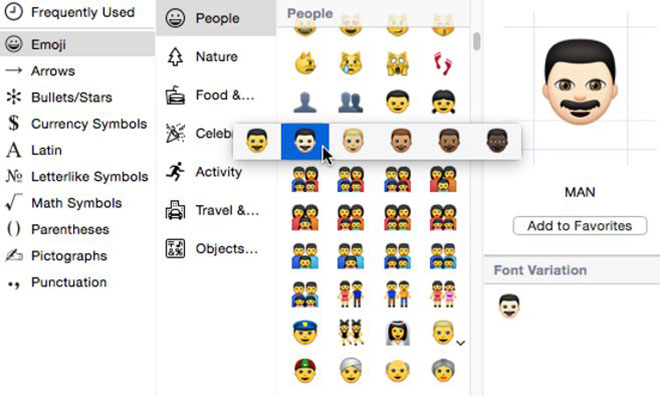
Tuesday Buzz: Diversity Matters, Emoji Edition
How one industry group's work is ensuring that emoji represent a broader range of human diversity. Also: Get people talking in your private community.
As you probably know, nonprofit organizations have huge impacts on many aspects of our lives. Here’s a way that you may not have imagined.
This week, Apple introduced beta updates of its Mac OS X operating system, which include more emoji offerings, in an effort to improve the icons’ diversity. The emoji icons now come in five additional skin tones, based on the Fitzpatrick scale, a standard scale used by dermatologists.
The new shades represent the first big step by the Unicode Consortium, a nonprofit industry group that sets official standards for software code. The organization is directly responsible for the characters that most computers and smartphones display and why those characters look the same on an Android device as they do on a Mac or Windows box. (Though, being voluntary standards, they’re not always on the mark.)
Unicode made the changes in response to complaints by some computer users that emoji didn’t visually represent the variety of people who use the icons.
“People all over the world want to have emoji that reflect more human diversity, especially for skin tone,” Unicode stated in a draft standard published in November. “The Unicode emoji characters for people and body parts are meant to be generic, yet following the precedents set by the original Japanese carrier images, they are often shown with a light skin tone instead of a more generic (nonhuman) appearance, such as a yellow/orange color or a silhouette.”
Apple’s beta releases for iOS and OS X represent the first public display of these icons in action—though most end users won’t get access to them for at least a few months.
Start With a Seed
Trying to get people in your community talking online? Putting the right questions out there matters. In the video above, MemberClicks’ Kinsey Mahan explains the secrets to building stronger communities, including posting oft-asked questions and teaching members how to add photos to their profiles. Sound interesting? Learn more about the subject.
Other Links of Note
Strategic partnerships can expose themselves in unlikely ways; just ask Waffle House, which is joining forces with a delivery startup to compete with FedEx. Sound crazy? Christian Science Monitor correspondent Lisa Suhay explains why the move may in fact be crazy … like a fox.
“We think the how we get the message out is more important than the message itself. We race to be present in the popular channels.” Amanda Kaiser of Smooth The Path suggests that this strategy to member communication is the wrong way to go.
Thought leaders, all in one place: Looking for some smart insights? Check out Aptify’s Association Mavens Roundup, a downloadable e-book featuring conversations with the best and brightest of the association world.
(Screenshot via AppleInsider)






Comments